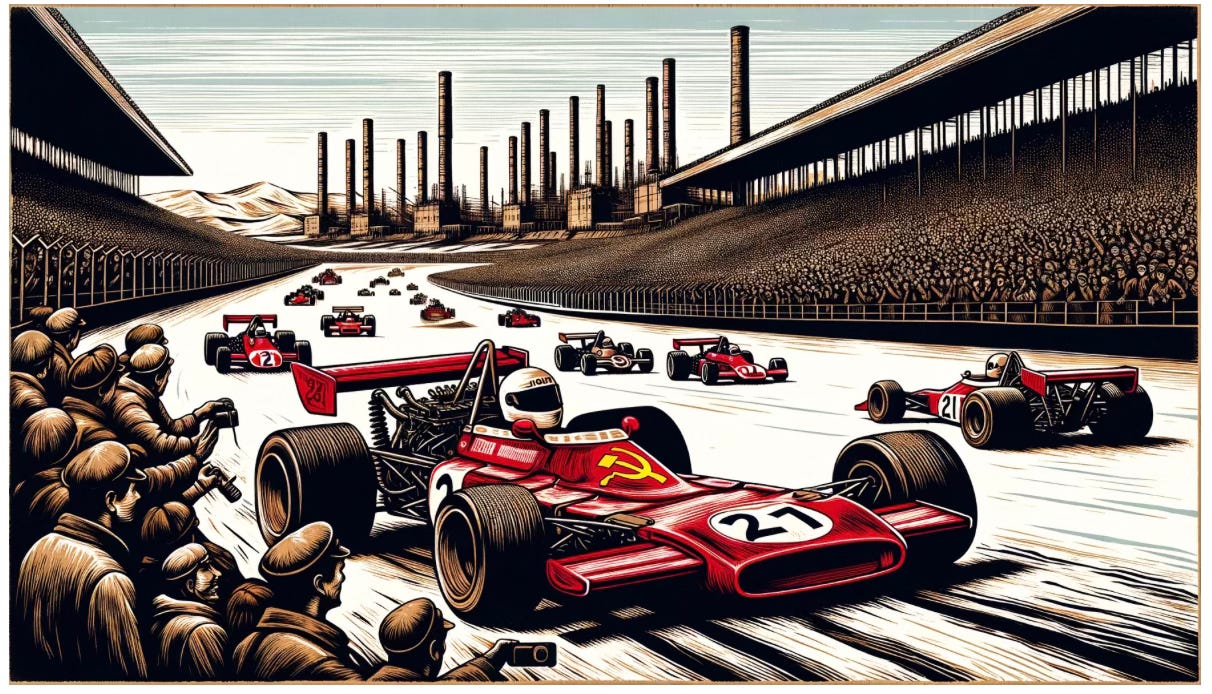You might recall last week’s post about the weird doings and a goings-on at Road and Track magazine, which first published then disappeared a rip snorting piece on a Formua One race by honest to goddamned commie (and noted cycling writer) Kate Wagner. I stumbled across it via Jonathon V Last’s Bulwark newsletter, The Triad.
He’s followed up. First pointing to a bit in the Washington Post:
It’s almost unheard of for a news outlet to retract an article without explanation, especially a story of this size whose accuracy has not been publicly challenged. Neither Wagner nor Road & Track responded to requests for comment.
A person familiar with editorial deliberations at Road & Track said the story, which had been in the works for months, was pulled after its publication at the order of Editor in Chief Daniel Pund on the grounds that it didn’t fit with the site’s editorial goals.
Pund, who was appointed to the magazine’s top job in January after working as the executive editor, was not aware of the story before it was published, according to the person, who spoke on the condition of anonymity to preserve confidences.
Then adding his own special sauce.
I don’t have any direct knowledge of what went down, but I have been around the block in this business and can make an educated guess:
Wagner’s piece was greenlit and submitted by the old editor. The new editor, Pund, didn’t know much about it. When it crossed his field of vision in the run up to publication he was busy doing a hundred other things since he’s new to the top job. And then once it was up, someone in Pund’s world emailed him and said, “What the fuck were you doing sending a commie to F1!”
At which point, Pund panicked. Because glossy magazines such as Road & Track are *entirely* dependent on their ability to get access to cars from auto-makers. Road & Track is every bit as dependent on car access for its business as InStyle or Vogue is dependent on celebrity access. (If Vogue can’t procure a hot celeb for the cover, the issue doesn’t sell. Period, the end.)
So Pund pulled the piece down before it could offend anyone in Car World and—on this point, I’m giving him the benefit of the doubt—hopefully apologized to Wagner and figured out a way to make it up to her.
On the one hand: This isn’t journalism. Pulling a piece without explanation isn’t journalism. Pulling a piece because you’re afraid that it threatens your business model really isn’t journalism. But I have some sympathy for Pund.
Road & Track may not be a journalism outfit, but if the business model is protected, it can still publish worthwhile pieces from time to time.
The problem is that the moment to kill Wagner’s piece was before it was published. Pund could have said, “Hey, my predecessor agreed to this piece, but it doesn’t work for me. Happy to pay you the kill fee and you’re free to place it elsewhere.” That wouldn’t have been the courageous choice, but it would have been honorable enough.
Pund’s decision to pull the piece after publication was both cowardly and dishonorable.
And again, while that sounds harsh, maybe he had to do it? Maybe keeping the lights on at Road & Track meant him having to jump on a grenade. No real judgment from me on that.
What’s illustrative about this episode is what happens at the intersection of economics and journalism.
If you depend on access, then you are beholden to those who grant access.
If you depend on advertising, then you are forced to chase virality and scale.
If you depend on a wealthy patron, you are subject to his/her whims.
If you depend on subscriptions, then you risk being captured by your audience.
There is no perfect way to fund journalism.
